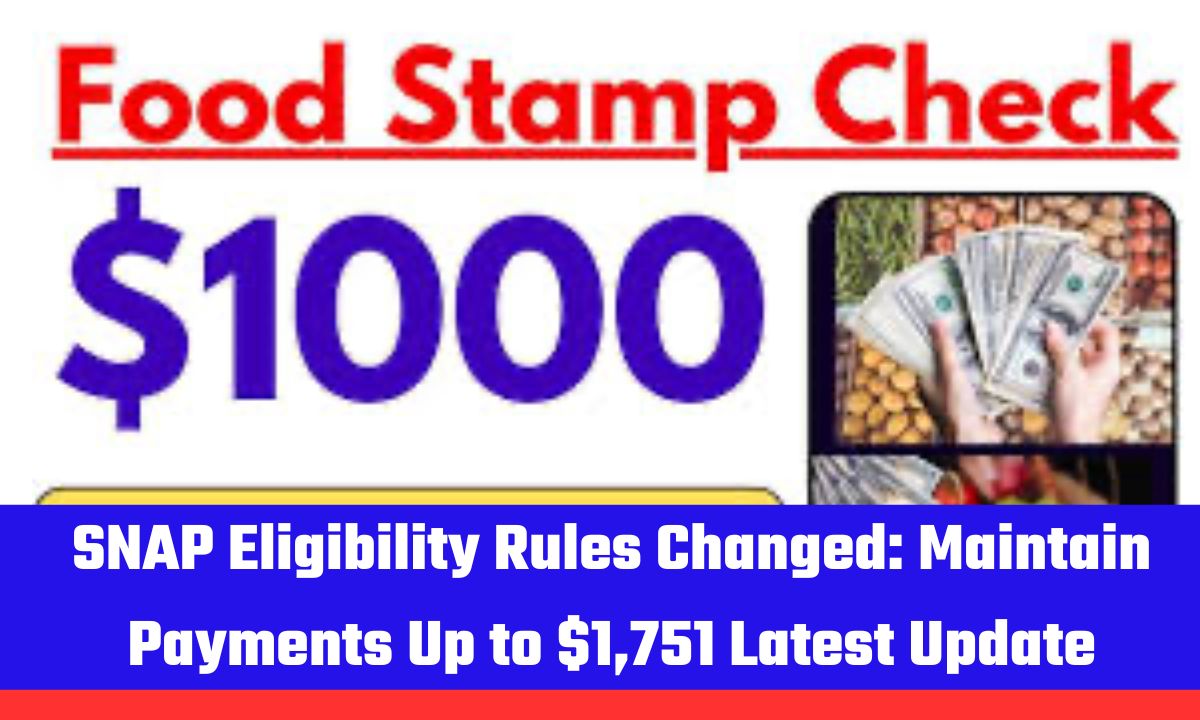You will be affected by substantial changes to the Supplemental Nutrition Assistance Program (SNAP) in 2024 if born in 1970 or 1971. This means you will be 53 or 54 years old then. The new regulations, particularly the time restriction for Able-Bodied Adults Without Dependents (ABAWD), will apply to individuals between the ages of 18 and 54, which may indicate that your eligibility for benefits may be affected. Listed below is an explanation of what is taking place and instructions on how to continue getting your SNAP benefits.
What Is the ABAWD Rule?
Those between the ages of 18 and 52 comply with the ABAWD regulation until September 30, 2024. On the other hand, beginning in October 2024, the age restriction will be raised to cover those up to 54 years old. When you are in this age range, it indicates that you are required to fulfil specific employment requirements to continue receiving benefits for more than three months during three years.
| Age Group | Work Requirement | Exemptions |
| 18-52 (through Sept) | Must work 80 hours per month | Disability, parents, veterans, homeless |
| 18-54 (after Sept) | Must work 80 hours per month | Pregnant, excused from work rules |
| 55 and older | Not required to meet ABAWD | N/A |
Failing to complete these standards might result in losing your benefits after three months.
Exemptions Under the ABAWD Rule
The ABAWD rules apply only to people who can work and do not have children. Fortunately, many people in unusual situations are exempt from the time restriction.
- Disability: If you are disabled, this rule will not apply to you, even if you are between the ages of 18 and 54.
- Parents: Adults aged 18 to 54 who have one or more children are exempt from the ABAWD time restriction.
- Veterans: If you have served in the military, you are exempt from the job requirements.
- Pregnant People: The ABAWD regulation does not apply to those who are pregnant.
- Older Adults: This time limit does not apply to anybody above the age of 55. So, once you reach the age of 55, you will be free of this restriction.
- Young Adults: People aged 18 to 24 who have just aged out of foster care are also excluded from this provision.
- Homelessness: Both individuals exempt from the regular SNAP employment guidelines and those who are homeless are not required to fulfil this criterion.
Who Are Affected By the ABAWD Rule?
For able-bodied adults aged 18-54, including those turning 53 or 54 in 2024, satisfying the ABAWD standards is crucial to continue receiving SNAP assistance. If you’re afraid about losing your benefits, here are a few steps you can take:
1. Work 80 hours per month: This is the easiest method to maintain eligibility for SNAP assistance. Whether you work full-time, part-time, or a combination of employment, the goal is to log at least 80 hours every month. Keep track of your working hours to verify you’re meeting the requirements.
2. Participate in a Work Program: Another option to fulfil the requirement is to participate in a work program. These programs, like conventional work, demand a minimum commitment of 80 hours per month. Ask your local SNAP office about possible programs in your region. One option is the SNAP Employment and Training program, which can help you satisfy your job obligations while acquiring new skills.
3. Combine job and Training: If the local SNAP office gives the go-ahead, you can also combine job and training activities. As long as your total combined hours equal up to 80 each month, you will be eligible for benefits. This choice allows you to balance your time between employment and school or training, giving you some freedom.
4. Consider Workfare: If typical jobs or programs don’t fit your needs, consider workfare. Workfare enables you to work in return for SNAP benefits. The number of hours you are expected to labour is determined by how many food stamps you get. If you qualify, your SNAP office will determine the amount of work hours required to retain eligibility.
Frequently Asked Questions
Ans: The ABAWD rules limits assistance for persons aged 18-54 who don’t satisfy job requirements.
Ans: You need to work at least 80 hours a month.
Ans: Those with disabilities, veterans, parents, and pregnant individuals are excluded.

